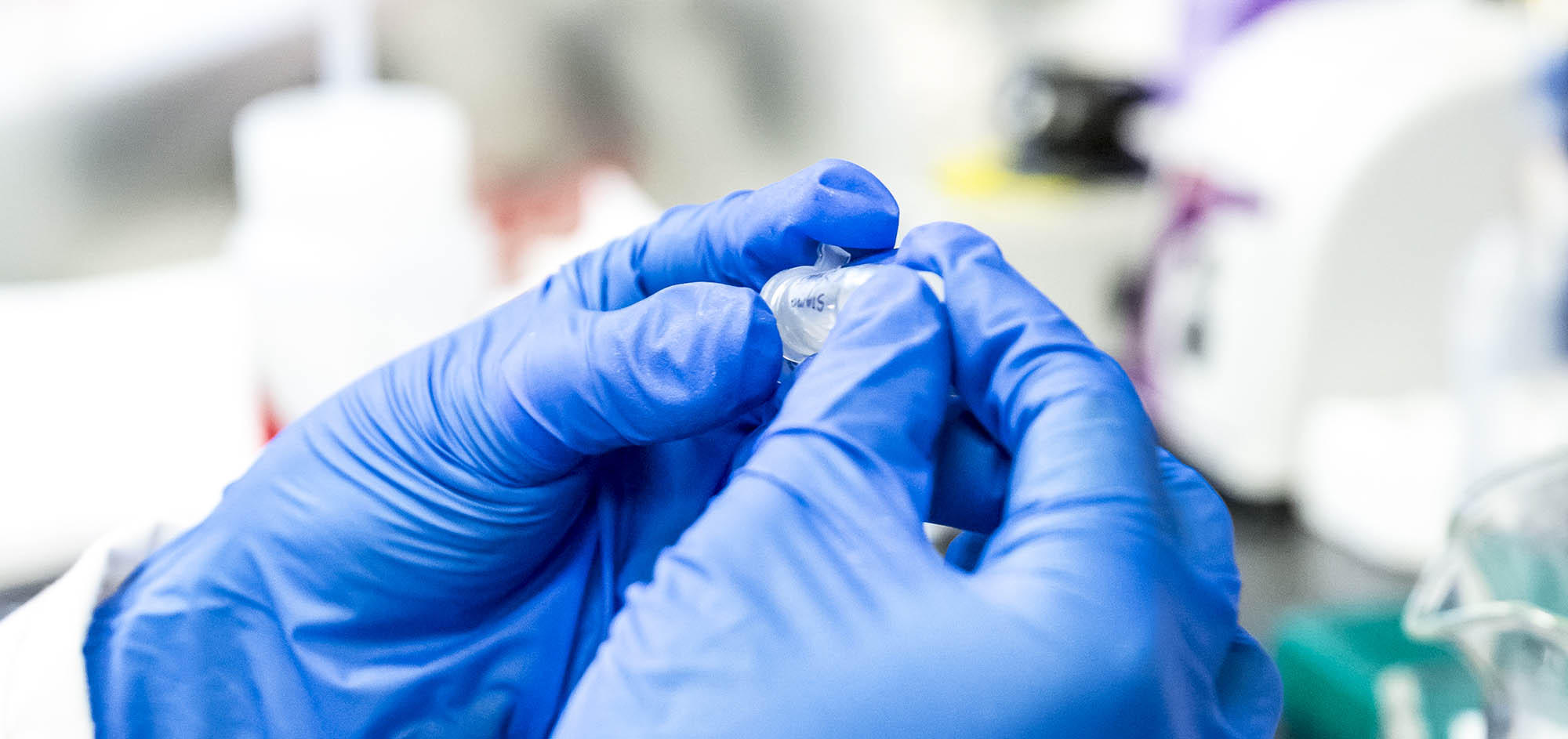In 2020 when a virus changed the world, Monica Rosas Lemus was among the researchers tasked with taking a deep dive inside the molecular makeup of COVID-19 to help find targets for vaccines or drug development.
It was a massive undertaking, but her mentor’s words guided her every step: In this life we have to be brave!
And brave she is, jumping into critical research during the height of the pandemic, and continuing studies at The University of New Mexico that could improve methods for developing more effective treatments and combating future pandemic coronaviruses and antimicrobial resistance.
In January Rosas Lemus started at UNM as assistant professor in the Department of Molecular Genetics & Microbiology. She is one of five female scientists to recently receive a grant from the National Institutes of Health (NIH) to continue her research at UNM. She comes to UNM from Northwestern University. “When I received my acceptance letter, I felt like the day was brighter,” she says. “I told myself, ‘You finally did it.’”
Rosas Lemus is studying the relationship between infectious diseases and metabolism. “I'm using as a model of infection a coronavirus to discover new targets that are common to all coronaviruses and that we can use for developing new therapeutics, just in case another coronavirus comes up and we have to deal with a new pandemic.”
Born and raised in Mexico City, Rosas Lemus grew up in a home full of books, surrounded by nature.

I have always been curious about the things around me. I’m always questioning what is this and that, how does it work and why?
“I have always been curious about the things around me. I’m always questioning what is this and that, how does it work and why?” she says. “Sometimes I feel like I’m a 3-year-old kid discovering the world. I get excited when I learn something new.”
Rosas Lemus earned her PhD at the National Autonomous University of Mexico. She did her first postdoctoral research at the Illinois Institute of Technology in Chicago and from there continued her research at Northwestern.
That’s where she became interested in studying the structure of metabolic proteins of microorganisms, related to infectious diseases and antimicrobial resistance.
“We basically don't have enough tools to design new drugs,” she says. “If you have a bacterial infection, the first thing that the doctors do is give you antibiotics, but they are not very effective, and we are running out of drugs to treat severe infections caused by antimicrobial-resistant pathogens. There are many species that are evolving to resist more and more. So, it’s a burden that is just building up and it’s very serious.”
Rosas Lemus was doing postdoctoral research at Northwestern’s Center for Structural Genomics of Infectious Diseases when COVID-19 hit. By NIH mandate, she and her team began studying of COVID-19 viral proteins based on what was known from the SARS virus.
“What we do there is determine the structure of proteins important for the pathogenesis or antimicrobial resistance of microorganisms,” she says. “The goal is to analyze these structures and develop new therapeutics, like drugs or vaccines. The idea is that if a microorganism is producing a protein that is essential for the replication or for the pathogenesis, we could use that protein as a good target. If we inhibit that protein, we can either prevent the pathogenic behavior or the replication or colonization of the host.”
Studying the structure of proteins is like looking at a map that points to an active site, Rosas Lemus says. “Or, sometimes they tell you other sites that are important for interacting with other proteins or that are exposed, so you can use them to develop vaccines, for example.”
In COVID-19, it was the spike protein structure located on the outside of a coronavirus that scientists used to develop mRNA vaccines, like those created by Pfizer-BioNTech and Moderna, and protein subunit vaccines (Novavax).
At UNM, Rosas Lemus’ NIH-funded research is focused on the future.
“Now we have vaccines and drugs that inhibit replication of coronaviruses,” she says. “However, the natural history of pathogenic microorganisms taught us that evolution promotes resistance and there are some studies showing that coronaviruses could develop resistance to the current treatments.
“So, we need to address this issue by targeting different parts of the viral replication cycle that are less prone to develop mutations, which can a cause resistance. Then, whenever another coronavirus crisis or another outbreak comes up, we are ready to address it because we will have vaccines on one side but also other drugs that might help to prevent the spread of disease.”
One of the goals of her research is to better understand the interaction of specific proteins from SARS-COV-2 (the virus responsible for COVID-19) with other proteins in the host.
“Coronaviruses need both viral and host proteins for replication and we know some of these interactions are essential to support viral replication and infection,” she says.
“Coronaviruses have a huge complex for viral RNA replication formed by at least five different proteins. However, the metabolic pathway that follows replication, and its organization is not well described. I’m interested in understanding the regulation and organization of this pathway, named Capping, because this is an essential process that the virus uses to hide from the immune surveillance of the host cell.”
Rosas Lemus says the last step of the metabolic pathway is the complex nsp16-nsp10, which has a very low mutation rate. Because of that, she says it’s a good candidate for drug development.
“During the pandemic, I focused on studying the structure and activity of this complex,” she says. “Now my research aims to understand how nsp16-nsp10 interacts with other viral proteins in the cell. Does this complex also interact with host proteins, can we determine the structure of these complexes and develop a specific inhibitor that targets these interactions, and finally what are the consequences of capturing host proteins and metabolic pathways for the benefit of the viral replication on the host metabolism?”
The last question is very important, she says, because that research could lead to a better understanding of why individuals with metabolic diseases, like diabetes or metabolic syndrome have worse outcomes with COVID-19. “Then we could look for other treatments specific for these conditions.”
Rosas Lemus says combining her research with what we already know about COVID-19 is key.
“To be a good scientist we have to be humble, open and communicate with other disciplines,” she says. “We cannot know everything, but we can always learn something new, and open the door to brighter ideas.”
